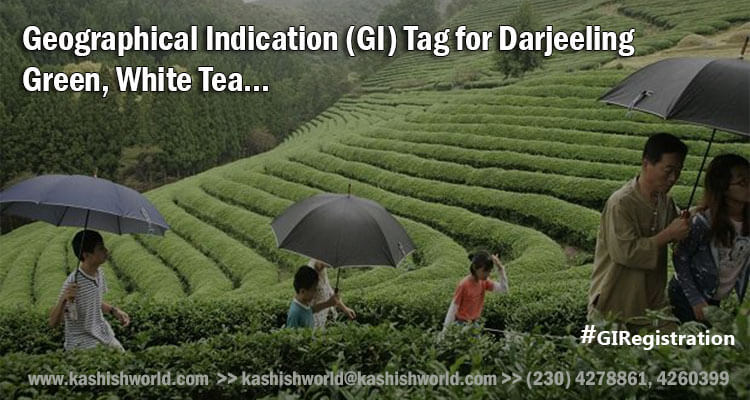
Darjeeling green and white teas, costing somewhere between Rs 3000 and Rs 10,000 per kg as per the variety, have received the Geographical Indication (GI) tag for the domestic market, which shall put an end to all the doubts about their quality and authenticity. With effect from 24th October 2019, both these premium teas have been registered as a GI product in India, which implies that any tea sold under the name of Darjeeling green or white tea in the domestic market without the GI tag shall not be considered authentic.
Kaushik Basu, the secretary at Darjeeling Tea Association (DTA), stated that Darjeeling black tea has already received the GI tag, and with the increasing demand for Darjeeling green and white tea in the domestic market, they went forward to protect these two varieties under GI and accordingly the Tea Board took steps to register them as well.
The registered proprietor of GI for Darjeeling tea is the Tea Board. Geographical Indications refer to the indications that help in identifying a product originating from a particular region where a given reputation, quality, or characteristic of the product is attributable or unique to its geographical origin.
Darjeeling white tea has a very different and distinctive aroma. On the one hand, the leaves used to make black tea undergo the process of oxidation and withering, and on the other hand, no such requirement is there in the process of making white tea. To be specific, white tea has to undergo very little processing in its manufacturing. The terminal buds with rich pubescence of tea shoots are purely dried in the natural sunlight, which results in the buds retaining a velvety silver color covering. Besides, the white tea brews have a light translucent or pale yellow color along with a slightly sweet flavor. It has no grassy undertones, which are sometimes associated with the Darjeeling green tea.
Kaushik Basu said that among the tea connoisseurs of both India and abroad, the white tea remains as the preferred choice, due to which, these teas fetch premium prices. Darjeeling white tea has enormous demand in the European Union and the United States. The estimated annual production of Darjeeling white tea is one lakh kg.
The DTA secretary stated that they are also looking forward to registering both Darjeeling green and white teas under Protected Geographical Indication (PGI) for seeking protection in the world markets. He also said that the demand for Darjeeling green tea is increasing at a quick pace due to the health and nutritional benefits associated with it. The reason behind Darjeeling green tea tasting better than the other green teas lies in the fact that it is way too less oxidized.
The estimated annual production of Darjeeling green tea is one million kg. The 87 tea estates in Darjeeling hills produce somewhere around 8.5 kg of teas annually. According to the industry observers, the Geographical Indication Registration of Darjeeling white and green teas will protect their authenticity and quality. However, they also believe that there still needs to be efficient mechanisms in place for ensuring the unscrupulous traders never involve themselves in the practice of misusing the GI tag.

